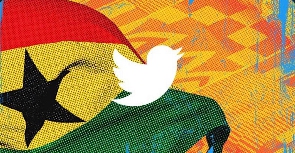Recently, Twitter founder, Jack Dorsey, announced the decision to establish Twitter's Africa's head office in Ghana.
In his announcement on Twitter, he said his new team members would be working remotely under its work-from-home policies. At the same time, the company explores "the opportunity to open an office in Ghana in the future."
In reaction, Nigeria's minister of information, Lai Mohammed, blamed Nigerians' internet activities and last year's #EndSARS protests for Twitter's decision.
According to him, Nigerians are de-marketing the country, and their unpatriotism led to Twitter's decision. But the pertinent question is: How did social response lead to Twitter's executive decision and not the economic and business reality in the country?
Following Ghana's decision to host the African Continental Free trade Area (ACFTA) in 2020, some relationship was forged between the country's government and many business owners willing to trade in a free and relaxed economic atmosphere.
And this is what Ghana, to an extent, shows with its business-friendly and forward-thinking policies. Projecting the potentialities of The African Continental Free Trade Area to creating a safe environment for business and increasing employment opportunities and incomes could be the factors that influenced Twitter's decision.
Where there is freedom on the part of a business owner to choose a safe environment for the conduct of his business and economic activities, the alarming level of insecurity, economy and business-related policies in Nigeria may not presently entertain the attraction or interest of investors.
For example, Nigeria's inflation in March 2021 rose to 18.17%, the highest in four years. Inflation can throw off business plans and result in lower profits, and If costs are rising due to inflation, a business may not be able to pass onto customers.
Another relevant issue to consider is the renewed crackdown on freedom of expression in Nigeria. The country's socio-political environment suppresses press freedom with increased violation of human rights. This suppression has gone to the extent of attempting to regulate social media usage in Nigeria.
Social media has transformed the world into a global community, where the majority of people spend most of their time. An attempt at regulation may reduce engagement by users and curb media's freedom of operation.
The rules, perhaps, would be considered a market threat. The government also needs to mend its position on social media regulation. The government should be well-meaning in their policies to ensure that respect for democracy and freedom of information are not blatantly infringed.
In addition, business regulations and policies must be open, equal and transparent to foreign and domestic businesses. Another area that needs urgent intervention to attract foreign investors is the country's failing security.
The cost of life and material resources lost to insecurity in the country over the past few years is unquantifiable. As a result, many companies and businesses in most parts of the country have stopped operating.
All these are what Twitter would have factored into its decision and not people's legitimate reactions to injustice and systemic corruption.
Opinions of Thursday, 22 April 2021
Columnist: Ope Adetayo















